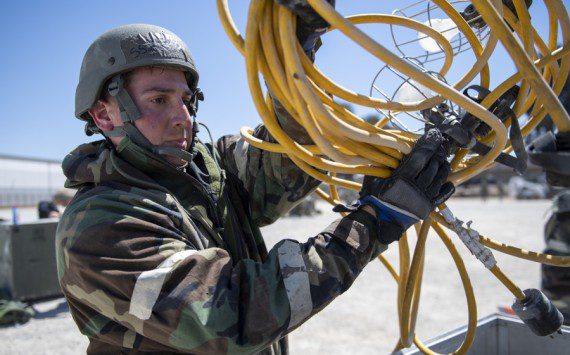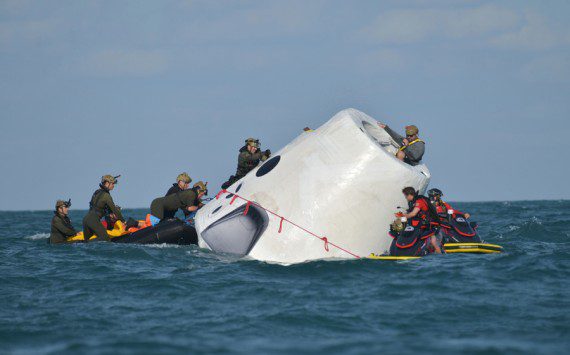Aerospace giant Boeing saw its quarterly earnings plunge 9 percent compared to last year, with the Chicago-based company posting $1.2 billion in profits.
Revenues were up 2 percent to $22.6 billion but that was not enough to offset higher costs for Boeing’s products and labor.
Boeing is currently in the process of reducing its 160,000-person workforce by about 4,500 to help keep its costs under control. The bulks of those jobs — about 4,000 — will come from its commercial aircraft unit. The company had a backlog of 5,740 commercial jets at the end of March but orders for new planes have slowed as oil prices have fallen and most airlines have their future aircraft needs mapped out. While list prices for new planes continues to rise, fierce competition with European plane-maker Airbus and a surplus of cheap used planes has led to deep cuts in the prices actually paid by airlines. Boeing values its backlog at $424 billion. Most of that money is not actually paid until the planes are delivered.
CEO Dennis Muilenburg told Wall Street analysts on a call April 27 that low oil prices have not changed the company’s outlook toward future jet purchases. He said cancelations or changes to bookings are lower than historic averages.
The company delivered 176 commercial jets during the quarter, down from 184 during the same period last year.
During the first three months of this year, Boeing’s products and labor costs increased to $19.1 billion, up 3.2 percent from the same period last year. It also spent an extra $148 million — or 19 percent — on research and development as it prepares to roll out a new generation of its popular 737 and 777 jets.
The company also took a $162 million pretax charge took on the Air Force’s KC-46 Pegasus Tanker, a midair refueling plane Boeing is building off its commercial 767 jet frame. That is in addition to a $536 million after-tax charge the company took last year on the tanker. The current one is related to engineering changes into aircraft already built and those in production. Boeing is currently building production aircraft while it is still doing flight testing to speed up the delivery of the delayed tanker program.
There was also a $70 million pretax charge on Boeing’s 747-8 freighter program which reflects a decline in the value of future revenue on the program. The four-engine jet has been unpopular with airlines and shippers, with just 51 passenger models ordered and 74 cargo versions. The global cargo market has slowed and, with that, so have new jet orders.
Boeing said it had profit of $1.83 per share. Earnings, adjusted for non-recurring gains, came to $1.74 per share.
The results missed Wall Street expectations. The average estimate of seven analysts surveyed by Zacks Investment Research was for earnings of $1.81 per share.
Boeing shares rose $2.07, or 1.6 percent, to $135.31 in midday trading. Its shares are down 8 percent in the last 12 months.











